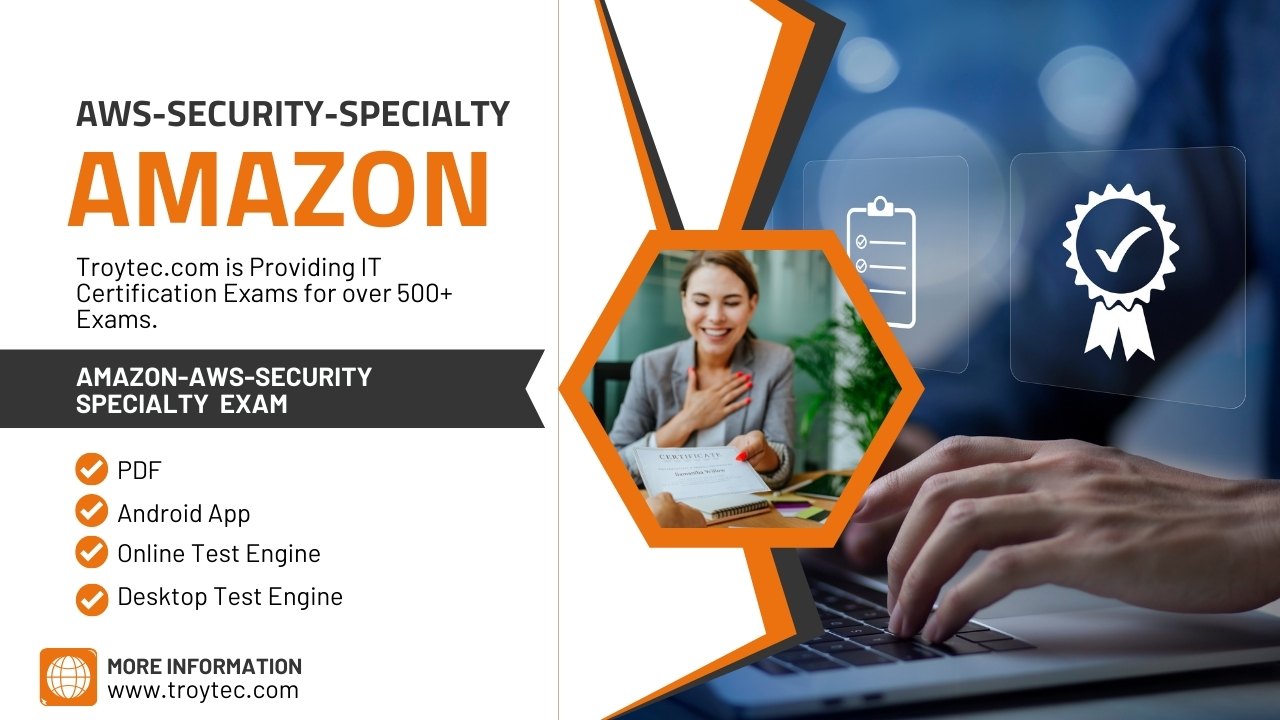Mastering the AWS Certified Security Specialty Exam
The AWS Certified Security Specialty Exam is a formidable challenge for professionals aiming to showcase their expertise in securing applications and services on the AWS platform. As businesses increasingly shift to the cloud, ensuring security and compliance within AWS environments has become a top priority. This comprehensive guide aims to provide you with detailed insights, tips, and strategies to help you excel in the AWS Certified Security Specialty Exam.
Understanding the AWS Certified Security Specialty Exam
The AWS Certified Security Specialty Exam is designed for individuals with an in-depth understanding of cloud security and the ability to execute security measures on AWS. It validates your knowledge across a range of security-related topics, from data protection to incident response.
Exam Format and Prerequisites
The exam format comprises multiple-choice and multiple-response questions that you must complete within 170 minutes. AWS recommends that candidates have at least five years of IT security experience and two years of hands-on experience securing AWS workloads. Familiarity with security controls for workloads on AWS and a deep understanding of security operations in the cloud is crucial.
Exam Domains
The exam covers five primary domains:
- Incident Response (12%)
- Logging and Monitoring (20%)
- Infrastructure Security (26%)
- Identity and Access Management (20%)
- Data Protection (22%)
Each domain encompasses several subtopics that test your ability to implement security measures effectively and troubleshoot security issues within an AWS environment.
Preparing for the Exam
To ensure you are well-prepared for the AWS Certified Security Specialty Exam, we recommend following these steps:
1. Thorough Understanding of AWS Services
A solid grasp of AWS services is fundamental. Focus on services related to security such as:
- AWS Identity and Access Management (IAM): Understand IAM policies, roles, and best practices for user access management.
- AWS CloudTrail: Learn how to enable CloudTrail, monitor API calls, and integrate CloudTrail with other services.
- AWS Shield: Familiarize yourself with AWS Shield for DDoS protection and know the difference between AWS Shield Standard and Advanced.
2. Study Resources
Utilize a variety of study resources to cover all exam domains thoroughly:
- AWS Official Documentation: AWS offers a wealth of official documentation, whitepapers, and FAQs that are crucial for deepening your understanding.
- Online Courses and Tutorials: Platforms like A Cloud Guru, Coursera, and Udemy offer specialized courses tailored to the AWS Certified Security Specialty Exam.
- Practice Exams: Engage in practice exams to familiarize yourself with the exam format and types of questions you might encounter.
3. Hands-On Experience
Practical experience is invaluable. Set up a personal AWS environment to experiment with security configurations and practices:
- Create IAM Users and Groups: Practice creating IAM policies and assigning permissions.
- Set Up VPC Security: Configure VPCs with security groups, network ACLs, and VPN connections.
- Implement Data Encryption: Work with AWS Key Management Service (KMS) to manage and encrypt data.
4. Join AWS Security Communities
Being part of a community can provide insights and support:
- AWS Discussion Forums: Engage with the AWS community to share knowledge and ask questions.
- AWS Events and Webinars: Attend AWS security-focused events and webinars to stay updated on the latest trends and best practices.
Tips for Success on Exam Day
1. Time Management
Ensure you allocate your time wisely during the exam. With 65 questions to answer in 170 minutes, aim to spend approximately two and a half minutes per question. If you encounter difficult questions, mark them for review and move on to maximize your score potential.
2. Understand Question Scenarios
Many questions are scenario-based and require you to apply your knowledge to a specific context. Pay close attention to the details in the scenario and eliminate incorrect options to narrow down the correct answer.
3. Stay Calm and Focused
It's normal to feel anxious during the exam, but staying calm and focused is key. Take deep breaths, read each question carefully, and trust in your preparation and experience.
Post-Exam Certification
After successfully passing the exam, you will receive the AWS Certified Security Specialty credential, which validates your expertise in AWS security best practices. This certification is highly regarded in the industry and can open doors to new career opportunities and advancements.
.jpg)
.jpg)
.jpg)
.jpg)
Comments
Post a Comment